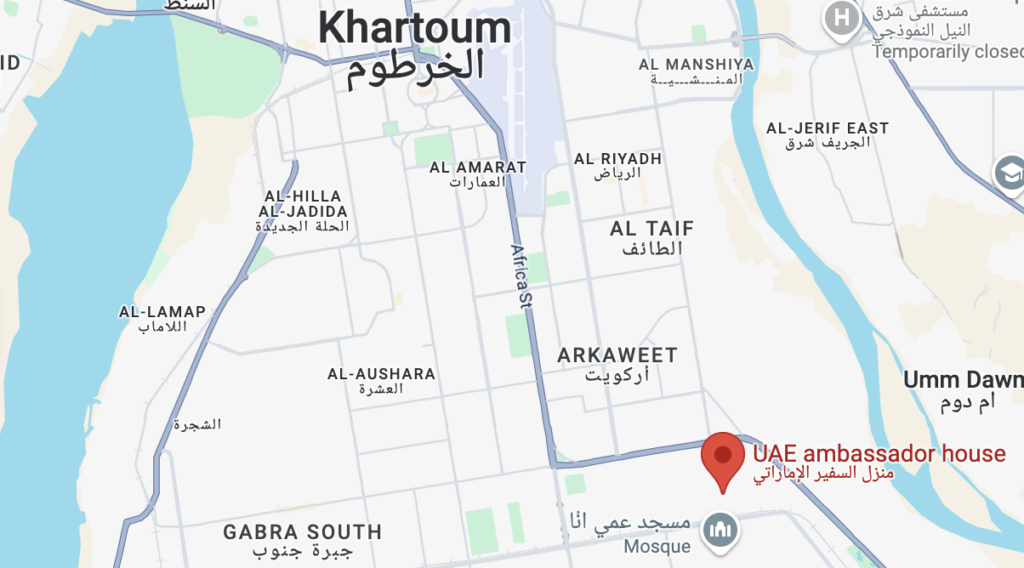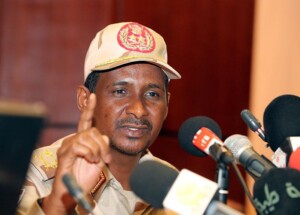Emirates blames Sudan army for airstrike on ambassador’s Khartoum residence

Location of the Emirati ambassador's house in southern Khartoum marked in red (Source: Google Maps)
The United Arab Emirates (UAE) has accused the Sudanese Armed Forces (SAF) of launching an airstrike on the residence of its ambassador in southern Khartoum, the capital of Sudan, yesterday. The SAF denied responsibility for the attack.
In a strongly worded statement, the UAE Ministry of Foreign Affairs condemned the airstrike, alleging that a SAF aircraft targeted the ambassador’s residence, causing significant damage to the building. No casualties were reported.
The ministry called the attack “cowardly” and urged the Sudanese military to take full responsibility. The UAE also expressed concern over the safety of its diplomatic mission in Sudan.
The Emirati MoFA added that it plans to submit a formal protest to the League of Arab States, the African Union, and the United Nations. It described the attack as a “flagrant violation” of international law and diplomatic protocols, stressing that the safety of diplomatic staff and missions must be upheld.
Jasem Al Budaiwi, secretary-general of the Gulf Cooperation Council (GCC), also condemned the attack. While abstaining from naming the SAF directly, he called on the Sudanese government to ensure the protection of all diplomatic facilities and personnel, emphasising that such violations are unacceptable under international norms.
El Badawi reiterated the GCC’s commitment to Sudan’s sovereignty and stability, urging both the Sudanese government and the paramilitary Rapid Support Forces (RSF) to engage in peace talks, including initiatives such as the Jeddah platform.
The SAF categorically denied the UAE’s claims. In a statement this morning, the military spokesperson asserted that the army “does not target diplomatic missions”, blaming instead the “terrorist, rebel [Dagalo] militia” (the RSF) for committing such an act.
The army reaffirmed its right to defend Sudan against the [RSF] militia, which it described as a threat to the country’s sovereignty.
Tense relations
A few months after war broke out between the SAF and RSF in Khartoum on April 15, 2023, reports about UAE military support to the RSF appeared.
In November 2023, SAF Deputy Commander-in-Chief Lt Gen Yasir El Atta unleashed harsh criticism against the UAE and other countries he accused of supporting RSF. This led to fears among Sudanese living in the UAE, Sudan’s primary trading partner over the past two decades, and the expulsion of 15 Emirati diplomats from Port Sudan. A month later, US Congress members urged the UAE foreign affairs minister to end his country’s support to the RSF.
On June 18, 2024, the Sudanese and the UAE representatives clashed over the subject during a United Nations Security Council (UNSC) session.
At the end of June 2024, the UAE suspended emergency residence permits for Sudanese refugees.
Last week, UAE President Mohammed Bin Zayed met with US President Joe Biden and Vice President Kamala Harris. Their talks focused on Sudan, rather than the expected topics of the Russia-Ukraine war or the Gaza conflict, to the surprise of political analyst Mohamed Hereika.











 and then
and then